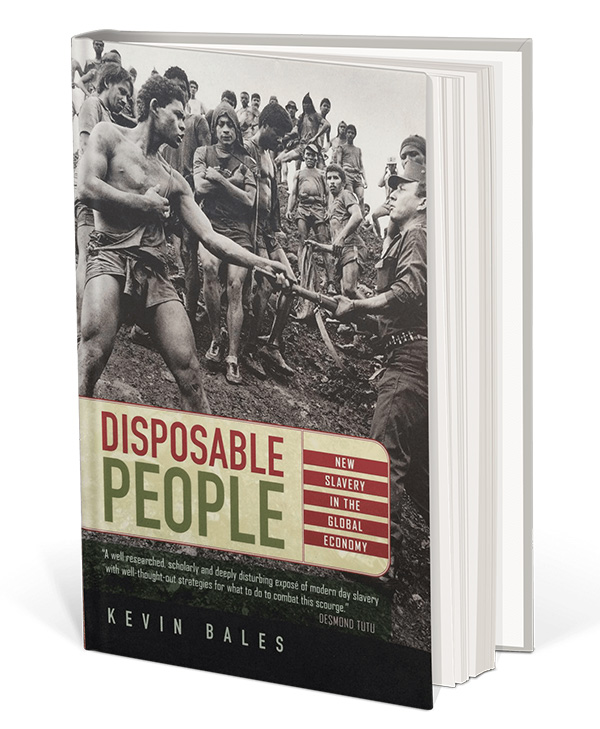
Disposable People: New Slavery in the Global Economy
Kevin Bales
Berkeley: University of California Press, 2004
If you knew nothing about modern day slavery, you might think that a writer investigating the subject would need to go to extraordinary lengths to find any human beings still living as chattel slaves in the Twenty-First Century. Maybe put on a disguise and infiltrate a remote compound, far from the reach of any civil authority. That’s what I thought before I read Kevin Bales’ book, Disposable People. What I learned, though, is that modern day slave economies operate openly, all over the world, and that as many as 25 million people in the world–right now, today–live in slavery.
Modern day slaves might be farmers, miners, brick makers, or textile workers. They might live in India, Pakistan, Thailand, Mauritania, or Brazil. They are part of the global economy, and the products of their labor can be found all over the world, maybe even in your own home.
Bales, though, doesn’t just set out to horrify the reader with the scope and reach of modern day slavery. He also provides, in the book’s last two chapters, suggestions for actions that concerned citizens–and consumers–can take to help eradicate slavery from our world.
This book is part of the 2017 Berkeley Summer Reading List. Stay tuned for more weekly posts!